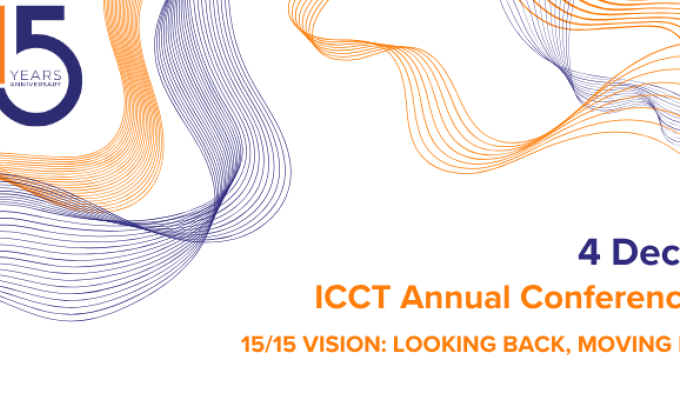“Justice has been done”, stated US President Barack Obama in his late-night statement on Sunday night, announcing that 9/11 mastermind Osama bin Laden was killed in a fire fight with US Navy Seals in an affluent suburb of Islamabad. Surely, the death of the al Qaeda leader, US public enemy number one and the mastermind of various deplorable terrorist attacks, has high symbolic value after a ten year worldwide manhunt. The endurance among the military and counter-terrorism community in the United States during the last ten years is commendable.
In a way, bin Laden’s death marks the end of an era, the Age of Terror. An era that started with the attacks on New York and Washington in September 2001, in which an organisation of ex-Mujahedeen decided to strike the US in order to force it to retreat its military presence in the larger Middle East region and inspire the Ummah to join the global Jihad. As has been stipulated by many commentators over the last four years, Al Qaeda has failed in both objectives. As a consequence of the 9/11 attacks the Bush administration increased its military presence in the greater Middle East, engaging in operations in Afghanistan and Iraq and expanding its military bases in Saudi-Arabia, Qatar and other places. Furthermore, states such as Iran and Syria that – like al Qaeda – opposed US interference in the Middle East were increasingly isolated by the international community. The US, following the attacks, thus only strengthened its presence in the areas that al Qaeda sought to rule and transform into a caliphate.
At the same time, the al Qaeda leadership has never been able to inspire and mobilise the Arab street to revolt against its oppressive leaders. In fact, the recent revolts in Tunisia, Egypt and other countries prove that the average Muslim is more interested in democracy and political freedom than in al Qaeda’s version of Islam. Mohamed Bouazizi, the 26 year old unemployed Tunisian university graduate who set himself on fire in December 2010 and sparked the "Jasmine revolt", did not die in the name of Jihad pursuant to the goals of al Qaeda and like-minded organisations. He died as an ordinary citizen demanding a better life. His deed based on genuine and authentic outrage has resonated profoundly with the people of Tunisia, and Egypt and throughout the Middle East, who took the same risks, defying the power of the state and thus putting their own lives on the line in peruse of political change and the end of oppression. Al Qaeda’s protracted campaign of Jihad has never and will never be able to inspire such large scale support and actions. Instead of being the voice of the people and motivate them to action, al Qaeda has alienated itself from most of its potential support base due to the violent, indiscriminate and in the end ineffective nature of its actions and rhetoric. Although anti-Americanism is still very much a reality on the ground, the fact that the CIA was able to penetrate the inner circles of bin Laden indicates that the support base for al Qaeda is dwindling in Pakistan.
The only successes of the al Qaeda leadership can be found in the exploitation of the repressive Western approach in the (immediate) aftermath of 9/11. By relying almost solely on a military solution with a sometimes questionable level of compliance with human rights and core Western values, the "Global War on Terror" has at times been ineffective and even counter-productive. In countries such as Pakistan and Afghanistan, there exists a clear lack of local support for what is perceived as a struggle imported from the West. Moreover, images of Guantanamo Bay, Abu Ghraib or Blackwater-type scandals have had a larger mobilising effect on young men to take up arms in the name of Jihad than all of bin Laden’s messages combined.
Bin Laden’s death is an important milestone in the US’ effort to defeat al Qaeda. Ever since 2003/4, the organisations striking power, effectiveness and credibility have been on the decrease. Bin Laden and al Qaeda Central lacked the operational and tactical powers it enjoyed ten years ago, seemingly unable to truly coordinate its numerous affiliate organisations across the world, further undermining the organisation’s credibility and striking power. Nevertheless, even without central coordination, affiliate organisations such as al Qaeda in the Islamic Maghreb and Al Qaeda in the Arabian Peninsula and individuals such as Anwar al-Awlaki and Abu Yahya Al Libi remain active and dangerous. Already, bin Laden is eulogised on numerous Islamist forums and many have sworn revenge. The coming weeks will likely see a spike in violent retaliations by inspired supporters and comrades-in-arms; attempts to demonstrate their continued resilience and striking power even after the death of their sheikh.
Let us hope that the death of Osama bin Laden indeed marks the end of an era; the end of an overemphasis on repression in the struggle against terrorism and the threat stemming from al Qaeda Central. The Global War on Terror paradigm and the heavy focus on repressive counter-terrorism measures granted a status to al Qaeda and likeminded organisations that they in no way deserved. However, after its irrelevance in the Arab Spring and its failure to mobilise large parts of the population to throw out Western forces and corrupt dictators throughout the greater Middle East, the death of its iconic and unifying leader and the lack of a strong successor with similar stature is the ultimate blow to al Qaeda Central. Not only tactically and strategically, but also morally and ideologically.
Bin Laden’s death underlines the hypocrisy of the Jihadist narrative and the leadership propagating it. He, the sheikh that gave up all his wealth for a greater cause, did not die fighting valiantly in the desert against those he held responsible for oppressing his fellow Muslims. No, he died in a one million dollar house in a fancy suburb of Islamabad, surrounded by his wives and children far away from the actual battlefield, his ideology’s spiritual home or his ‘fellow fighters’. Bin Laden’s death provides an important window of opportunity to the US and the international community as a whole to emphasise the bankruptcy of this violent extremist ideology and provide an alternative narrative.
This is what it all boils down to: Yes, bin Laden’s death may be the (symbolic) end of the Age of Terror and its accompanying violent ideology. But now is the time to alter our own narrative as well. What story has the West to offer the people of the greater Middle East? The effect of continued operations in Afghanistan, drone attacks in the AfPak area and Yemen and Guantanamo Bay-type scandals on this message should be considered closely. The struggle against terrorism now more than ever requires a decrease in focus on repressive measures, thorough review of the (potential) negative side-effects of current policies such as secret detention and targeted killing and a new type of engagement with the greater Middle East region – supporting freedom and civil liberties, not repressive authoritarian regimes. This is the right moment to end the cycle of violence and revenge on both sides and enter a new era where security concerns and respect for human rights go hand in hand and strengthen each other; where political processes and freedoms are the solution, not continued repression and violence. That should be our message.








